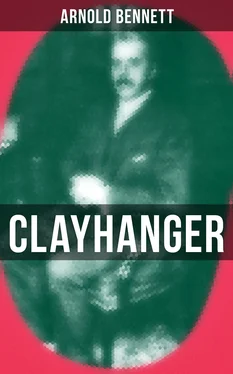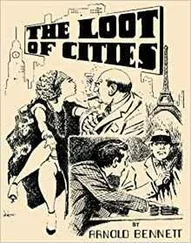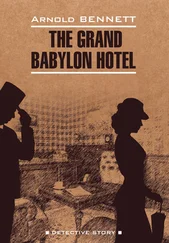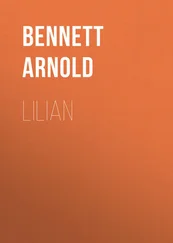Now his desire had been fulfilled; it had been more than fulfilled. The town would chatter about Edwin’s presence of mind for a week. Edwin’s act would become historic; it already was historic. And not only was the act in itself wonderful and admirable and epoch-making; but it proved that Edwin, despite his blondness, his finickingness, his hesitations, had grit. That was the point: the lad had grit; there was material in the lad of which much could be made. Add to this, the father’s mere instinctive gratitude—a gratitude of such unguessed depth that it had prevented him even from being ashamed of having publicly and impulsively embraced his son on the previous morning.
Edwin, in his unconscious egoism, ignored all that.
“I’ve just seen Barlow,” said Darius confidentially to Edwin. Barlow was the baker. “He’s been here afore his rounds. He’s willing to sublet me his storeroom—so that’ll be all right! Eh?”
“Yes,” said Edwin, seeing that his approval was being sought for.
“We must fix that machine plumb again.”
“I suppose the floor’s as firm as rocks now?” Edwin suggested.
“Eh! Bless ye! Yes!” said his father, with a trace of kindly impatience.
The policy of makeshift was to continue. The floor having been stayed with oak, the easiest thing and the least immediately expensive thing was to leave matters as they were. When the baker’s stores were cleared from his warehouse, Darius could use the spaces between the pillars for lumber of his own; and he could either knock an entrance-way through the wall in the yard, or he could open the nailed-down trap door and patch the ancient stairway within; or he could do nothing—it would only mean walking out into Woodisun Bank and up the alley each time he wanted access to his lumber!
And yet, after the second cracking sound on the previous day, he had been ready to vow to rent an entirely new and common-sense printing office somewhere else—if only he should be saved from disaster that once! But he had not quite vowed. And, in any case, a vow to oneself is not a vow to the Virgin. He had escaped from a danger, and the recurrence of the particular danger was impossible. Why then commit follies of prudence, when the existing arrangement of things ‘would do’?
That afternoon Darius Clayhanger, with his most mysterious air of business, told Edwin to follow him into the shop. Several hours of miscellaneous consultative pottering had passed between Darius and his compositors round and about the new printing machine, which was once more plumb and ready for action. For considerably over a week Edwin had been on his father’s general staff without any definite task or occupation having been assigned to him. His father had been too excitedly preoccupied with the arrival and erection of the machine to bestow due thought upon the activities proper to Edwin in the complex dailiness of the business. Now he meant at any rate to begin to put the boy into a suitable niche. The boy had deserved at least that.
At the desk he opened before him the daily and weekly newspaper-book, and explained its system.
“Let’s take the ‘British Mechanic,’” he said.
And he turned to the page where the title ‘British Mechanic’ was written in red ink. Underneath that title were written the names and addresses of fifteen subscribers to the paper. To the right of the names were thirteen columns, representing a quarter of the year. With his customary laboriousness, Darius described the entire process of distribution. The parcel of papers arrived and was counted, and the name of a subscriber scribbled in an abbreviated form on each copy. Some copies had to be delivered by the errand boy; these were handed to the errand boy, and a tick made against each subscriber in the column for the week: other copies were called for by the subscriber, and as each of these was taken away, similarly a tick had to be made against the name of its subscriber. Some copies were paid for in cash in the shop, some were paid in cash to the office boy, some were paid for monthly, some were paid for quarterly, and some, as Darius said grimly, were never paid for at all. No matter what the method of paying, when a copy was paid for, or thirteen copies were paid for, a crossing tick had to be made in the book for each copy. Thus, for a single quarter of “British Mechanic” nearly two hundred ticks and nearly two hundred crossing ticks had to be made in the book, if the work was properly done. However, it was never properly done—Miss Ingamells being short of leisure and the errand boy utterly unreliable—and Darius wanted it properly done. The total gross profit on a quarter of “British Mechanics” was less than five shillings, and no customers were more exigent and cantankerous than those who bought one pennyworth of goods per week, and had them delivered free, and received three months’ credit. Still, that could not be helped. A printer and stationer was compelled by usage to supply papers; and besides, paper subscribers served a purpose as a nucleus of general business.
As with the “British Mechanics,” so with seventeen other weeklies. The daily papers were fewer, but the accountancy they caused was even more elaborate. For monthly magazines there was a separate book with a separate system; here the sums involved were vaster, ranging as high as half a crown.
Darius led Edwin with patient minuteness through the whole labyrinth.
“Now,” he said, “you’re going to have sole charge of all this.”
And he said it benevolently, in the conviction that he was awarding a deserved recompense, with the mien of one who was giving dominion to a faithful steward over ten cities.
“Just look into it carefully yerself, lad,” he said at last, and left Edwin with a mixed parcel of journals upon which to practise.
Before Edwin’s eyes flickered hundreds of names, thousands of figures, and tens of thousands of ticks. His heart protested; it protested with loathing. The prospect stretching far in front of him made him feel sick. But something weak and good-natured in him forced him to smile, and to simulate a subdued ecstasy at receiving this overwhelming proof of his father’s confidence in him. As for Darius, Darius was delighted with himself and with his son, and he felt that he was behaving as a benignant father should. Edwin had proved his grit, proved that he had that uncommunicable quality, ‘character,’ and had well deserved encouragement.
The next morning, in the printing office, Edwin came upon Big James giving a lesson in composing to the younger apprentice, who in theory had ‘learned his cases.’ Big James held the composing stick in his great left hand, like a match-box, and with his great right thumb and index picked letter after letter from the case, very slowly in order to display the movement, and dropped them into the stick. In his mild, resonant tones he explained that each letter must be picked up unfalteringly in a particular way, so that it would drop face upward into the stick without any intermediate manipulation. And he explained also that the left hand must be held so that the right hand would have to travel to and fro as little as possible. He was revealing the basic mysteries of his craft, and was happy, making the while the broad series of stock pleasantries which have probably been current in composing rooms since printing was invented. Then he was silent, working more and more quickly, till his right hand could scarcely be followed in its twinklings, and the face of the apprentice duly spread in marvel, When the line was finished he drew out the rule, clapped it down on the top of the last row of letters, and gave the composing stick to the apprentice to essay.
Читать дальше












